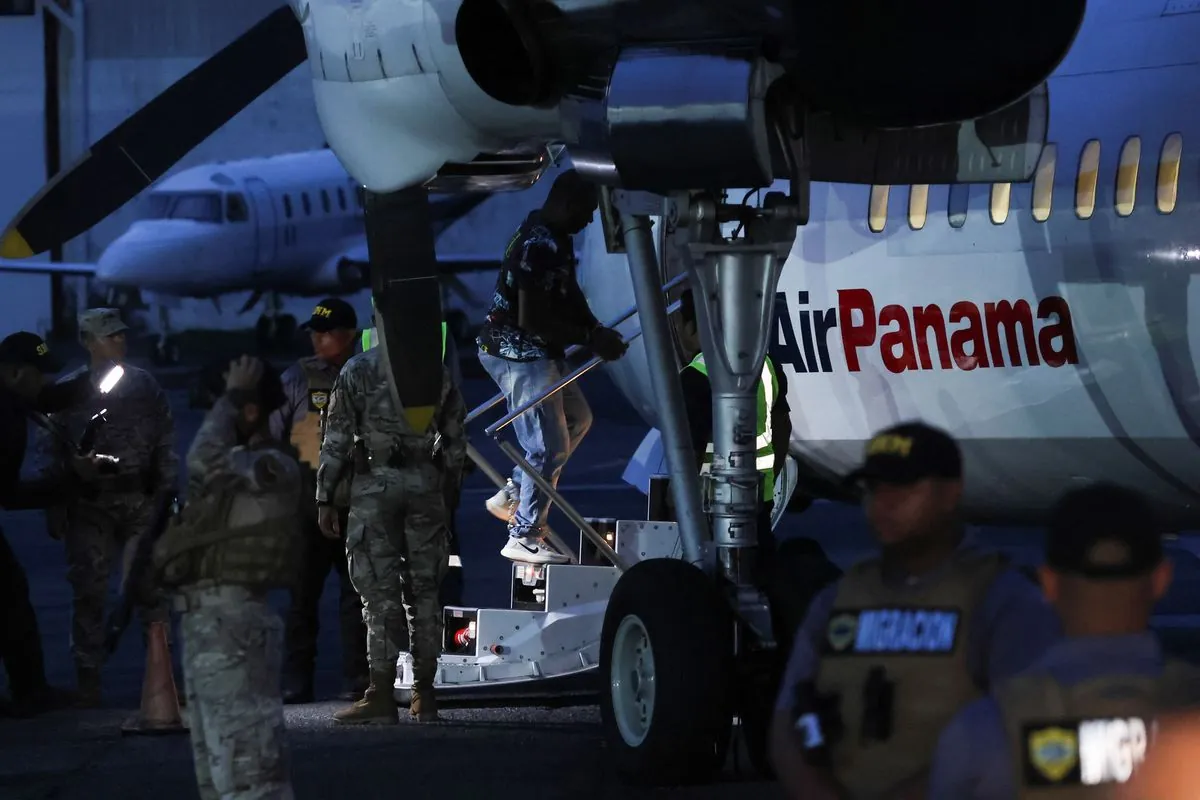In a significant move to address the ongoing migration crisis, Panama's government has unveiled plans to expand its deportation flights program. The initiative, announced on August 22, 2024, targets migrants apprehended in the Central American nation, with flights scheduled to Ecuador, India, and China.
President Jose Mulino, who recently took office on a platform promising to end Panama's role as a major transit point for migrants, revealed the details during his weekly press conference. The deportation flights, financed by Washington, commenced earlier in the week with an initial flight carrying Colombian migrants.
This development comes at a crucial time, less than three months before the November 2024 U.S. presidential election, where unlawful migration has emerged as a significant campaign issue. The timing underscores the complex interplay between regional migration policies and U.S. domestic politics.
For years, the Darien Gap, a treacherous stretch of jungle connecting Colombia and Panama, has been a perilous route for migrants seeking to reach the United States. This region, known for its biodiversity with over 10,000 plant species and 1,500 animal species, has become synonymous with the challenges of irregular migration.
Mulino provided specific dates for the upcoming deportation flights:
- August 29, 2024: Flights to Ecuador
- August 30, 2024: Flights to Colombia
- September 3, 2024: Flights to India
Additional flights to Colombia are planned between August 24-30, 2024. However, Mulino did not disclose details about the number or dates of flights destined for China.
The president did not specify the legal status of the migrants slated for deportation or whether they have criminal records. This lack of information raises questions about the criteria being used for selecting deportees.
Panama, a country of approximately 4.3 million people as of 2024, has long grappled with its role in regional migration patterns. Its strategic location, connecting North and South America, makes it a natural transit point for those seeking to reach the United States.
"Our goal is to ensure safe, orderly, and regular migration while respecting human rights and our international obligations."
This new deportation initiative reflects Panama's ongoing efforts to balance its humanitarian responsibilities with the need to manage migration flows. As a country without a standing army since 1990, Panama faces unique challenges in border control and migration management.
The involvement of Washington in financing these deportation flights highlights the international dimension of the migration issue. It also underscores the continued influence of U.S. policy in the region, reminiscent of the historical relationship that saw Panama gain full control of the Panama Canal from the United States in 1999.
As Panama moves forward with this expanded deportation program, questions remain about its long-term effectiveness and impact on regional migration patterns. The country's approach to this complex issue will likely continue to evolve, shaped by both domestic concerns and international pressures.
